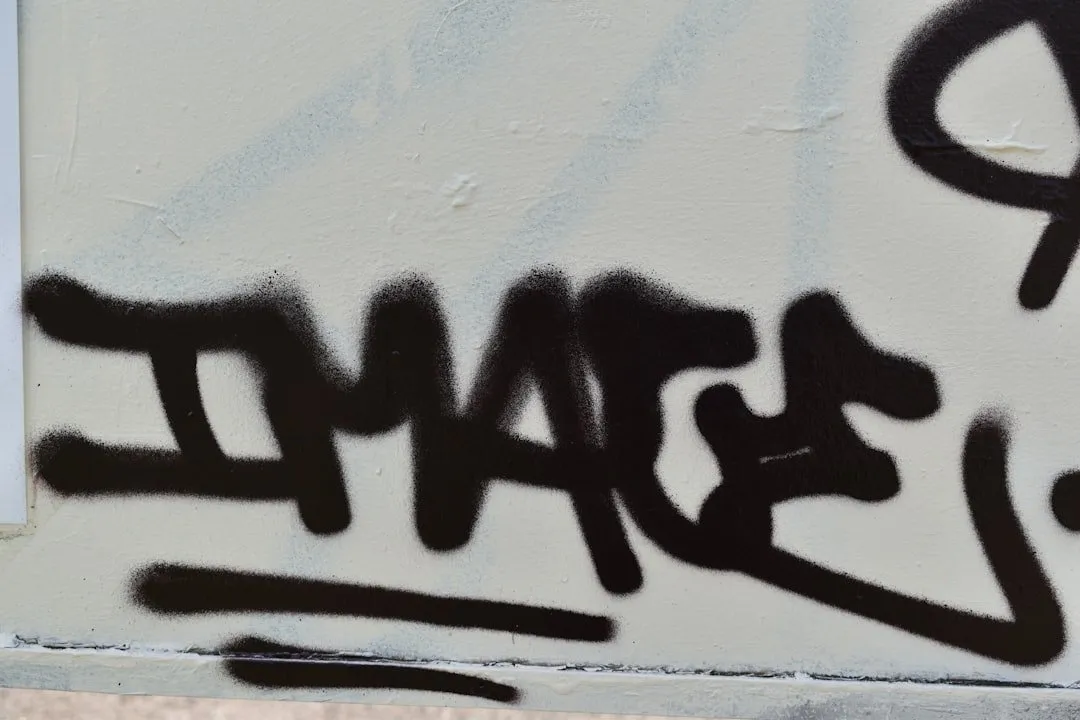Category: kratom legal in indiana
Kratom Legal in Indiana: A Comprehensive Analysis
Introduction
In the complex landscape of legal and regulatory affairs, the status of kratom—a herb with a rich history and diverse applications—in Indiana stands out as a subject of keen interest. “Kratom legal in Indiana” is more than a simple phrase; it represents a nuanced discussion involving cultural, economic, and political factors. This article aims to dissect and explore the various facets of this topic, offering readers an insightful journey through the current state, historical background, global implications, and future prospects of kratom’s legal status within the state of Indiana. By delving into these aspects, we hope to provide a comprehensive understanding and shed light on why this subject matters in today’s world.
Understanding Kratom Legal in Indiana
Definition:
Kratom, scientifically known as Mitragyna speciosa, is a tropical tree native to Southeast Asia, primarily grown in countries like Thailand, Malaysia, and Indonesia. Its leaves have been used for centuries in traditional medicine practices, particularly in these regions. In the context of Indiana, “kratom legal” refers to the state’s regulations permitting the cultivation, possession, and distribution of kratom under specific conditions.
Historical Context:
Indiana’s relationship with kratom is relatively modern compared to its historical use in Southeast Asia. The herb gained popularity in Western countries during the early 2000s when it emerged as an alternative treatment for opioid addiction and pain management. As a result, many U.S. states, including Indiana, began examining the potential benefits and risks associated with kratom.
In 2014, Indiana took a significant step by passing legislation that regulated the sale of kratom within the state. This move was driven by the growing demand for alternative pain management options and the desire to provide patients with legal access to a potentially less harmful substance than prescription opioids. The law established guidelines for kratom vendors, ensuring product safety and quality.
Significance:
The legalization of kratom in Indiana holds several implications:
- Public Health: Kratom advocates argue that it offers a natural alternative for individuals seeking relief from chronic pain or those attempting to recover from opioid addiction. By legalizing and regulating kratom, Indiana takes a proactive approach to public health, providing a safer option while ensuring product quality.
- Economic Opportunities: The regulated kratom industry has the potential to foster economic growth in Indiana. Local farmers could benefit from cultivating kratom, creating new job opportunities and contributing to the state’s agricultural sector. Additionally, licensed vendors might spring up, generating tax revenue for the state.
- Cultural Exchange: Kratom’s legal status can facilitate cultural exchange and education. It allows Indiana residents to explore alternative medicinal practices and promotes discussions about traditional healing methods from Southeast Asia.
Global Impact and Trends
Kratom’s global journey has been transformative, with its legal status varying widely across countries:
| Country | Kratom Legal Status |
|---|---|
| United States (including Indiana) | Regulated, with specific laws permitting possession, cultivation, and distribution under license. |
| Thailand | Illicit; kratom possession carries severe penalties due to its historical association with drug abuse. |
| Malaysia | Fully illegal except for limited use in traditional medicine practices with government approval. |
| Australia | Schedule 4 substance, requiring a prescription from a registered medical practitioner. |
| Netherlands | Partially legal; possession is allowed, but sale and distribution are restricted. |
Trends Shaping the Global Kratom Landscape:
- Legalization Movements: Several countries and U.S. states have recognized the potential benefits of kratom and moved towards legalization or decriminalization. This shift is driven by public support and advocacy groups pushing for alternative pain management options.
- Research and Scientific Interest: Growing scientific interest in kratom’s chemistry and pharmacology has led to increased research, potentially influencing policy changes worldwide.
- Online Market Growth: The internet has facilitated the global trade in kratom, making it easily accessible. However, this also presents challenges related to product quality and regulation.
Economic Considerations
Market Dynamics:
The kratom market in Indiana, as in other legal jurisdictions, operates within a specialized niche. Key market segments include:
- Retail stores selling various kratom products, such as leaves, capsules, and extracts.
- Online vendors catering to a global customer base, including those from Indiana who purchase kratom for personal use or research.
- Wholesale distributors supplying local retailers and businesses.
Investment Patterns:
Legalization has attracted investors interested in the potential profitability of the kratom industry:
- Farmers: Local farmers in Indiana may invest in cultivating high-quality kratom, requiring infrastructure and knowledge investments.
- Vendors and Distributors: Businesses establishing themselves as licensed vendors or distributors need significant startup capital for licensing, inventory, and retail/wholesale operations.
- Research and Development: Companies investing in research to explore new applications, formulations, or product lines.
Economic Impact:
The economic effects of kratom legalization in Indiana could be substantial:
- Job Creation: From farmers and distributors to retailers and researchers, the industry can generate various employment opportunities.
- Tax Revenue: Licensing fees and sales taxes from kratom products could contribute to the state’s revenue stream, potentially funding other public initiatives.
- Agricultural Boost: Indiana’s agricultural sector might see a boost with the potential for large-scale kratom cultivation, diversifying crop options for farmers.
Technological Advancements
Technological innovations have played a pivotal role in shaping the modern kratom industry:
- Harvesting and Processing Techniques: Improved harvesting methods ensure higher-quality kratom leaves, while advanced processing technologies enable the extraction of specialized compounds, enhancing product potency and consistency.
- Online Retail Platforms: E-commerce platforms allow for convenient and discreet kratom purchases, reaching a global market. These platforms often incorporate advanced search filters to help customers choose products based on their specific needs and preferences.
- Kratom Research: Scientific research utilizing modern laboratory equipment has led to a better understanding of kratom’s chemical composition and potential therapeutic benefits. This research contributes to evidence-based policy decisions.
- Mobile Applications: Apps offer educational resources, product reviews, and community forums, empowering consumers to make informed choices about their kratom purchases.
Policy and Regulation
The regulatory framework surrounding kratom varies across Indiana and the U.S., reflecting a complex interplay of federal, state, and local laws:
- Federal Level: The Federal Controlled Substances Act (CSA) classifies kratom as a Schedule I drug, indicating it has a high potential for abuse and no accepted medical use. This classification significantly impacts interstate trade and export/import activities.
- State Level: Indiana’s legislation allows for the cultivation, possession, and sale of kratom with a valid license. The state’s Department of Health oversees licensing, product quality, and compliance with regulations.
- Local Regulations: Some cities or counties within Indiana may have additional local ordinances regarding kratom sales and public consumption, further shaping its accessibility and use.
Key Regulatory Aspects:
- Licensing: Vendors must obtain licenses from the state to legally sell kratom, ensuring they meet health and safety standards.
- Product Quality: Regulations mandate specific criteria for kratom product quality, including identification of plant parts, purity testing, and labeling requirements.
- Age Restrictions: Similar to tobacco and alcohol, kratom sales may be restricted to individuals above a certain age (e.g., 18 or 21).
- Public Safety and Education: Some regulations focus on preventing misuse by mandating warning labels and educational materials accompanying kratom products.
Challenges and Criticisms
Despite its potential benefits, the legalized status of kratom in Indiana faces several challenges and criticisms:
- Misuse and Abuse Concerns: Critics argue that legalizing kratom may increase access for individuals who could misuse it, potentially leading to adverse effects or addiction. However, supporters counter that responsible use is possible, and education can mitigate these risks.
- Regulatory Compliance: Ensuring compliance with complex regulations can be challenging for vendors, particularly small businesses. Effective enforcement and clear guidance are essential to maintaining a level playing field.
- Public Perception: Misinformation and negative stereotypes associated with kratom may hinder public acceptance, especially among those unfamiliar with its traditional uses. Educational campaigns can help combat these perceptions.
- Federal Legal Status: The federal classification of kratom as a Schedule I drug creates complexities in interstate commerce and limits research opportunities, despite the state’s legalized status.
Proposed Solutions:
- Strengthen public education campaigns to promote responsible kratom use and dispel myths.
- Enhance vendor training and support programs to ensure compliance with regulations.
- Foster collaboration between state and federal authorities to streamline regulatory processes and facilitate research.
- Encourage further scientific research to gather evidence-based data on kratom’s safety and efficacy.
Case Studies: Successful Applications and Lessons Learned
Case Study 1: Kratom in Chronic Pain Management (Indiana)
In a rural Indiana community, a collaborative effort between local health clinics and kratom vendors led to a successful pilot program for chronic pain management using kratom as an adjunct therapy. The program involved carefully selected patients who had limited success with traditional medications. Results showed significant reductions in pain levels and improved overall quality of life. This case highlights the potential of kratom in specialized medical settings, emphasizing the importance of controlled dosing and patient monitoring.
Key Takeaways:
- Targeted, evidence-based applications can maximize kratom’s therapeutic potential while minimizing risks.
- Patient selection and careful vendor/medical professional collaboration are crucial for successful outcomes.
Case Study 2: Economic Impact in Southeast Asia (Malaysia)
In Malaysia, where kratom cultivation has a long history, legalizing its production and export has had economic benefits. Local farmers now have a sustainable income source, and the industry contributes to the country’s agricultural GDP. This case demonstrates that kratom can foster economic growth while ensuring traditional knowledge preservation. However, it also underscores the need for careful regulation to prevent over-exploitation of natural resources.
Lessons Learned:
- Legalization can empower local communities and contribute to rural development, but sustainable practices are essential.
- Balancing cultural heritage with modern regulations is a delicate process that requires ongoing dialogue.
Future Prospects: Emerging Trends and Strategic Considerations
The future of kratom legal status in Indiana and globally is shaped by evolving trends and emerging insights:
- Growing Public Acceptance: As public awareness increases, there may be growing acceptance of kratom as a viable alternative for pain management and opioid recovery. This shift could lead to more states legalizing or decriminalizing kratom.
- Scientific Research Advancements: Continued research is likely to uncover new therapeutic applications and provide further evidence supporting kratom’s safety and efficacy. Such findings can influence policy changes and public perception.
- Technological Innovations: Advanced cultivation techniques, improved testing methods, and digital platforms will play a significant role in shaping the industry. These innovations can enhance product quality, traceability, and accessibility.
- Regulatory Harmonization: International cooperation may lead to more standardized regulations, facilitating global trade while ensuring consumer protection.
Strategic Considerations for Indiana:
- Research and Education: Investing in research to fill knowledge gaps about kratom’s effects is crucial. Educational initiatives can empower residents to make informed choices and dispel myths.
- Vendor Support: Providing resources and support to licensed vendors can ensure a thriving industry while maintaining quality control.
- International Collaboration: Engaging with global kratom communities and experts can offer insights into best practices for regulation, cultivation, and research.
- Adaptive Regulation: Kratom regulations should be flexible and adaptable, allowing for adjustments based on new evidence and public feedback.
Conclusion: Weaving the Threads of Kratom’s Legal Story
The story of kratom legal in Indiana is a complex tapestry woven with threads of cultural history, economic opportunity, scientific inquiry, and public health considerations. As this article has explored, Indiana’s regulatory approach to kratom reflects a nuanced balance between embracing its potential benefits and ensuring public safety. The state’s experience offers valuable insights into the global dialogue surrounding kratom legalization, highlighting the importance of evidence-based policies, community engagement, and continuous adaptation to new findings.
As the landscape continues to evolve, Indiana—and other jurisdictions—face critical decisions that will shape the future of kratom in their regions. By embracing scientific research, fostering public understanding, and implementing adaptive regulations, these decisions can pave the way for a harmonious relationship between kratom and society, unlocking its potential while safeguarding against misuse.
FAQ Section: Answering Common Queries
Q: Is kratom legal in Indiana?
A: Yes, kratom is legal in Indiana, but it’s regulated by state law. Possession, cultivation, and distribution are permitted under specific licenses and conditions.
Q: What forms of kratom are available in Indiana?
A: Kratom is available in various forms in Indiana, including dried leaves, capsules, extracts, and powders. Retail stores and online vendors offer these products, catering to different consumer preferences.
Q: Can I grow kratom plants in my backyard in Indiana?
A: While it’s legal to cultivate kratom in Indiana, home cultivation is subject to specific regulations. You’ll need a license, and the number of plants you can grow may be limited. Check with local authorities for precise guidelines.
Q: Is kratom an opioid?
A: No, kratom is not considered an opioid. It contains compounds known as alkaloids, including mitragynine and 7-hydroxymitragynine, which interact with opioid receptors in the body but produce different effects than traditional opioids.
Q: Are there any side effects associated with kratom use?
A: Like any substance, kratom can have side effects, especially when misused or taken in high doses. Common side effects include dizziness, nausea, and anxiety. Long-term effects are less understood, emphasizing the importance of responsible use and medical supervision.
Reducing Stress: Kratom Legal Status and Safety in Indiana

Kratom supplements, legal in Indiana but regulated locally, offer stress and anxiety relief via opio…….
Optimizing Athletic Recovery with Kratom Coaching: Indiana Legal Insights

In Indiana, where kratom is legal, athletes use it for post-workout recovery due to its anti-inflamm…….
Kratom Legal in Indiana: Boost Fitness Safely with Guidance
Kratom Legal Status & Athlete Recovery in Indiana

Kratom is currently legal in Indiana without restrictions but should be used responsibly under profe…….
Kratom for Recovery: Legal in Indiana? Safe Use Guide

Kratom, legal in Indiana but regulated federally, shows promise for addiction treatment despite mixe…….
Maeng Da Kratom Powder: Legal Status & Benefits in Indiana
Kratom for Legal Recovery: Indiana’s Post-Workout Guide

In Indiana, where kratom legal status is currently permitted with restrictions, athletes and fitness…….
Red Borneo Kratom: Legal in Indiana? Uncover Energy Secrets

Red Borneo Kratom, native to Borneo, is a legal and popular energy booster in Indiana, known for its…….
Kratom Legalities in Indiana: Navigating Chronic Pain Relief

Chronic pain impacts millions globally, with many in Indiana seeking natural relief through kratom,…….
Vietnam Kratom Leaves: Legal Status in Indiana & Safety Uses

Vietnam, renowned for its breathtaking landscapes and rich biodiversity, has emerged as a leading gl…….
Green Hulu Kratom Extract: Legal Insights and Natural Potential

Green Hulu Kratom Extract, legal in Indiana, offers mild yet versatile effects for stress, anxiety,…….
Kratom for Inflammation Relief: Legal in Indiana? Benefits & Safety

Kratom, legal in many areas including Indiana (with low mitragynine), offers anti-inflammatory benef…….
Kratom for Athletes: Legal Clarity in Indiana

Kratom (Mitragyna speciosa), legal in Indiana, is gaining popularity among athletes for its potentia…….
Kratom Legal in Indiana: Boost Focus & Clarity Safely
Bali Kratom Capsules: Legal in Indiana? Explore Benefits and Risks

Bali Kratom capsules, popular for pain relief and relaxation, are generally legal in many places but…….
Exploring Kratom’s Legal Energy Boost in Indiana
Bali Kratom Capsules: Legal in Indiana? Benefits & Safety Guide

Bali Kratom capsules are popular for their balanced effects and legal availability in Indiana, where…….
Malaysian Kratom Buds: Legal Status & Health Insights in Indiana

In Indiana, kratom is legal for possession and personal use but federal classification as a Schedule…….
White Sumatra Kratom: Legal Status & Health Benefits in Indiana

White Sumatra Kratom Powder from Indonesia is globally popular for its energizing and calming effect…….
Customized Workouts for Indiana Soreness Relief: Kratom Legal?

Muscle soreness, especially delayed onset muscle soreness (DOMS), is a natural response to intense e…….
Kratom Boosts Endurance: Legal in Indiana Guide

Kratom is legal in Indiana and gaining popularity as a natural performance enhancer for athletes and…….
Kratom for Athletes: Legal in Indiana, Boosting Performance Safely

In Indiana, where kratom is legally available, athletes explore its potential as a natural performan…….
Green Hulu Kratom Extract: Legal & Benefits in Indiana

Green Hulu Kratom Extract, a premium Southeast Asian extract from Mitragyna speciosa, is legal in In…….
Kratom for Athletes: Legal in Indiana, Boosting Performance Safely
Kratom Injury Prevention: Legal Status & Safe Management Practices in Indiana

Kratom, derived from Mitragyna speciosa, is generally legal statewide in Indiana but subject to loca…….
Kratom for Focus: Legal Status and Safe Incorporation Strategies in Indiana

Kratom, derived from tropical trees, is a natural herb legal in Indiana, known for its potential cog…….
Kratom for Muscle Soreness Relief: Is it Legal in Indiana?

Muscle soreness after intense exercise can become chronic and debilitating. Kratom, legal in Indiana…….
Kratom for Training Recovery: Legal Status & Safe Use in Indiana
Kratom for Inflammation: Indiana’s Legal Insights and Natural Remedies

Kratom, legal in several U.S. states including Indiana, is gaining attention for its natural anti-in…….
Maeng Da Kratom Powder: Legal Status & Benefits in Indiana

Maeng Da Kratom Powder, known for its potent effects from the Mitragyna speciosa plant native to Sou…….
Kratom for Athletes: Unlocking Mental Focus Legally in Indiana
Kratom Training in Indiana: Boosting Mental Toughness Legally

Mental toughness is a key driver of peak performance, and athletes in legal kratom states like India…….
Yellow Vein Kratom Powder: Legal Status & Benefits in Indiana

Yellow Vein Kratom Powder, cultivated mainly in Indonesia, is a versatile, legally accessible strain…….
Kratom Injury Prevention: Legal Status & Safe Management in Indiana
Kratom Legal in Indiana: Enhancing Athletic Performance Safely

Kratom is legally accessible in Indiana but requires adherence to state regulations and local busine…….
White Vein Kratom Powder: Legal Status & Benefits in Indiana

White Vein Kratom Powder, harvested from Southeast Asia, is popular in Indiana for its mild yet ener…….
Kratom Training for Mental Toughness: Legality in Indiana Explored

In Indiana, where kratom is legally recognized, this natural herb enhances mental toughness by inter…….
Kratom for Addiction Recovery: Indiana’s Legal Perspective
Kratom for Muscle Soreness: Legal Relief in Indiana’s Post-Workout Routine

Muscle soreness after intense exercise is caused by microscopic tears in muscle fibers leading to in…….
Red Vein Kratom Capsules: Legal Status & Benefits in Indiana

Red Vein Kratom capsules, with less than 0.3% THC, are now legal across Indiana, aligning with feder…….
Kratom for Pain Management: Legal Status and Safe Usage in Indiana

Kratom, a natural herb from Mitragyna speciosa tree, is generally legal and accessible in Indiana as…….
Kratom for Joint Pain Relief: Indiana’s Legal Options Explored

In Indiana, where kratom legality is regulated, many seek natural solutions for joint pain, a common…….
Kratom Training in Indiana: Boosting Mental Toughness Legally
Vietnam Kratom Leaves: Legal Status & Benefits in Indiana

Vietnam Kratom leaves, known for their high-quality production and potent natural effects, are popul…….
Purple Vein Kratom Capsules: Legal Status & Benefits in Indiana

In Indiana, Purple Vein Kratom capsules are generally legal without a prescription, offering a popul…….
Customized Workouts and Kratom: Soothing Indiana’s Legal Soreness Relief

Muscle soreness after exercise (DOMS) is a natural adaption caused by microscopic muscle fiber tears…….
Red Vein Kratom Capsules: Benefits, Legal Status in Indiana, and Selection Guide

Red Vein Kratom capsules are a convenient, legal (within restrictions) way to experience kratom'…….
Kratom for Energy: Legal Status and Safety in Indiana

Kratom (Mitragyna speciosa), legally available in Indiana, is a Southeast Asian herb gaining popular…….
Kratom for Joint Pain Relief: Legal Options and Safe Use in Indiana

Joint pain, a common global issue, can significantly impact daily life, but natural herb kratom (Mit…….


















